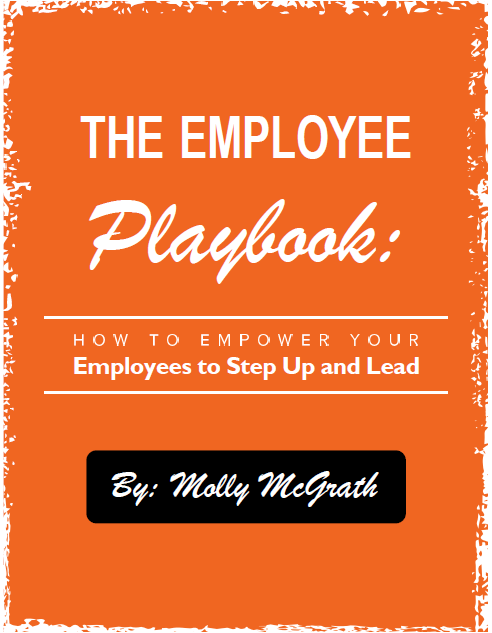 You could have the most qualified, experienced and talented team members in the world…but if you don’t know how to tap into their strengths, get them in sync, and working together, you’re just wasting all of those valuable resources. The strengths and weaknesses of each individual member of your legal team play a huge role in how they are able to most effectively contribute to the growth and sustained success of your firm. Their strengths and weaknesses play a huge role in how your team works together as a cohesive unit. Their strengths and weaknesses help leaders understand what kinds of tasks to assign, how to deliver feedback, and how to support the training and development of each individual team member.
You could have the most qualified, experienced and talented team members in the world…but if you don’t know how to tap into their strengths, get them in sync, and working together, you’re just wasting all of those valuable resources. The strengths and weaknesses of each individual member of your legal team play a huge role in how they are able to most effectively contribute to the growth and sustained success of your firm. Their strengths and weaknesses play a huge role in how your team works together as a cohesive unit. Their strengths and weaknesses help leaders understand what kinds of tasks to assign, how to deliver feedback, and how to support the training and development of each individual team member.
Yes, understanding the strengths and weaknesses of your team members is key to running a successful law firm. But determining what those strengths and weaknesses are…well, it’s not as easy as it might sound.
The most effective law firm leaders know how to get below the surface, figure out what makes their team members tick, and leverage their strengths to benefit both the employee and the firm.
Here are 5 ways to really get to know your law firm’s employees:
1. Give them what you want: honesty. Everyone has strengths and weaknesses…even you, mister-or-misses law firm leader. However, when asked what those strengths and weaknesses are, we’re conditioned to give those “canned” responses. Those responses that present a strength disguised as a weakness. I’m a perfectionist. Or those responses that we think will move us closer to that raise, that promotion, that new client contract. I’m a motivated self-starter with a track record of success.
Spare us.
If you really want your team members to be open about their strengths and weaknesses, be open about yours. Casual conversations at lunch—or while walking out to your cars at the end of the day—can pave the way for a team of self-aware individuals who know what they’re good at, what they’re great at, and where they stand to make some improvements.
2. Facebook stalk them. Okay, “Facebook stalk” is a bit aggressive, but looking at your team members’ social media profiles can provide you with a wealth of information—their likes, dislikes, skills, experience, expertise, sense of humor, etc. Maybe your firm works primarily with clients in the healthcare sector. Through social media screening, you might discover that some of your team members have volunteer experience that could benefit the firm and possibly provide an opportunity for everyone to sign up to support a cause that is near and dear to a member of the team’s heart. Bonus points for earning some good PR by making a positive difference in your community!
3. Observe their behaviors, objectively. Working with your team members day in and day out can make it hard to see what’s really going on with them and where they naturally shine. Sit back and observe: which team members are upbeat and friendly with everyone? That person could be leveraged when a diplomat is needed to smooth over office tensions. Which person do you feel is apathetic and disengaged? Do they act the same way during lunch? Yes? Well, maybe they’re not apathetic or disengaged—maybe they’re just introverted and shy. If you need help with this, email us to get a copy of our “Passion Keys” exercise.
4. Make it a game. Competition brings out the best and worst in people. While implementing little competitions won’t resolve major operational issues at your firm—if your employees are unmotivated or poorly matched to their jobs, you need more help than a game can offer—but they can be a fun way to find out which of your team members are natural leaders, which ones give up easily, and which team members work best with each other. Choose competitions that support your needs, for example, if you are unsure which employee to assign to your latest case, think about the qualities that would ensure an employee’s success in that role…and then devise a contest that would cultivate or draw out those skills.
5. Get analytical. Personality assessments, like Meyers-Briggs or Kolbe, can provide huge insight into who your team members are, and how to support their growth and development, provide them with feedback, and help them work more collaboratively with each other. We swear by the Kolbe assessment system—we use it with the law firms we work with to identify natural talents, pair individuals with the most appropriate job tasks, and understand where we have room to support their training and development. It’s amazing how, once we understand the nuances of a team member’s personality, we can nurture their talents and turn them into a leader, with the power to catalyze positive change for their firm.
If you’re not tapping into the full potential of your team members, then your firm is missing out on a huge opportunity for growth. When everyone is working hard, working smart, and working together seamlessly, then your firm is in good shape. But if that’s not your situation right now…if your firm is spinning its wheels, riddled with office drama…if your team members are dropping balls and you feel like no one has your back…then it could be time to bring in a team of professionals to assess your systems, evaluate your team members, and help you get things under control before it’s too late.


